Hunger Safety Net Programme (HSNP) disbursed Kshs. 623,255,100 (equiv.£4.65million) to to 98,492 regular households across four Northern Kenya's arid Counties of Turkana, Marsabit, Wajir and Mandera (see graphs below) on 18 May 2017 . Each household received a bi-monthly cash transfer value of Kshs. 5,400 (equiv.£40). HSNP regular cash transfers are paid to the poorest and most vulnerable households across the four Counties. Further, HSNP scales up to additional households during emergencies of drought and floods. For both regular and emergency households, cash is loaded into their active Equity bank accounts and accessed using debt ATM cards at designated Equity bank payment agents located within their sub-locations. Access to these payment is free of charge at the payment agents. HSNP communicates with the grassroots HSNP target audience via multiple channels that include public barazas (with chiefs, assistant chiefs and village elders), mass MIS enabled SMS alerts, local radio stations, programme officers to mention but a few. 60% of recipients of HSNP regular cash are women, meaning HSNP is enabling inclusion of financial services to rural remote women in the Arid Northern parts of Kenya. HSNP is co-financed by Governments of Kenya and the United Kingdom (UKaid). For more about HSNP trend analysis click HSNP Dashboard
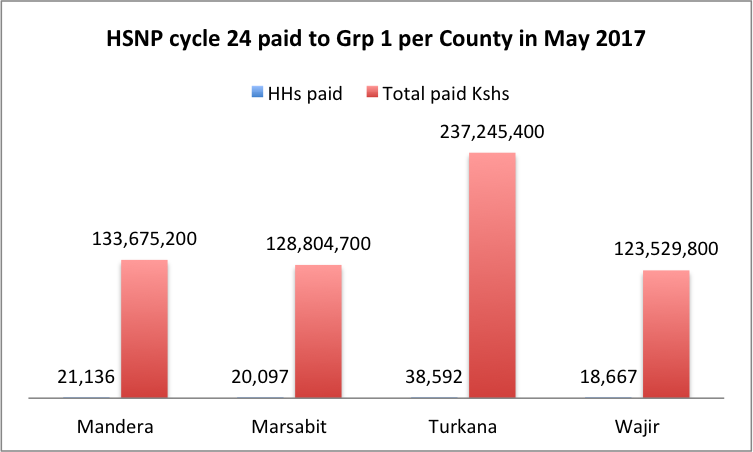 HSNP Cycle24 per County paid in May 2017
HSNP Cycle24 per County paid in May 2017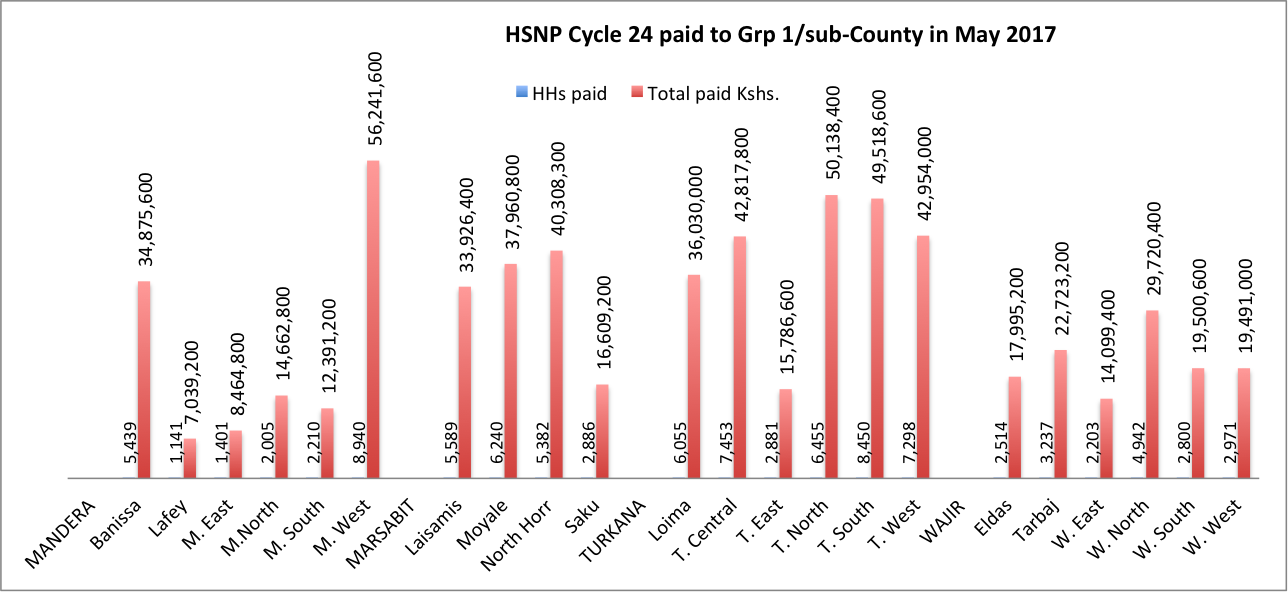 HSNP cycle 24 per sub-Counties in May 2017
HSNP cycle 24 per sub-Counties in May 2017
The total amount of cash transfers disbursements reflects the poverty status of the specific sub-County and County. Turkana has the highest number of poverty as reflected by the wealth ranking of the households and confirmed by the Kenya Households Integrated Budget Survey (KHIBS) of 2006. An external evaluation by Oxford Policy Management (OPM) (see graph below) revealed that HSNP households use the cash transfers on: food (meat, vegetable, milk, sugar, rice, maize and beans), settling debts, clothing, household items, education expenditure and livestock (goats, sheep).
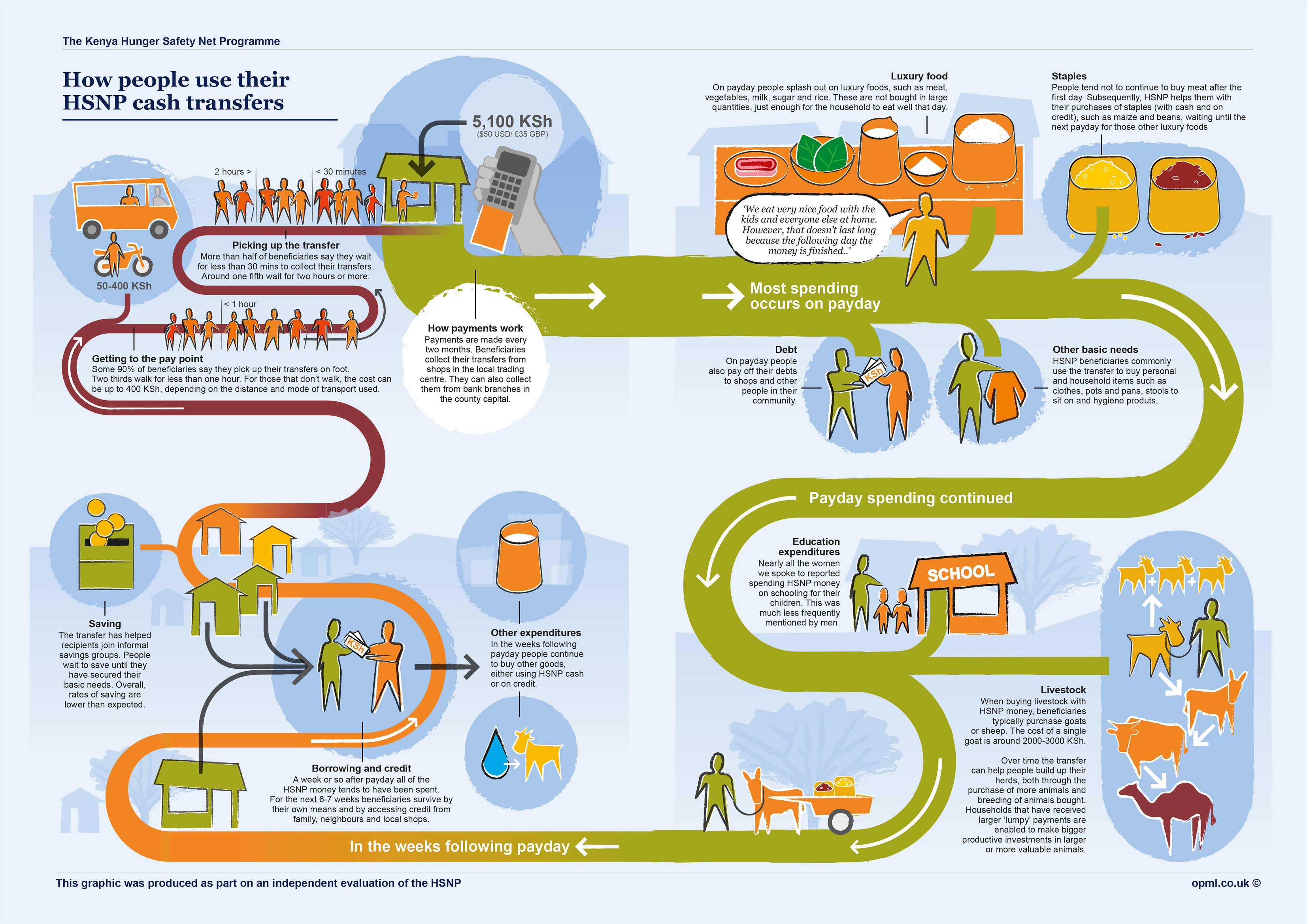 Spending of HSNP Cash Transfer
Spending of HSNP Cash Transfer

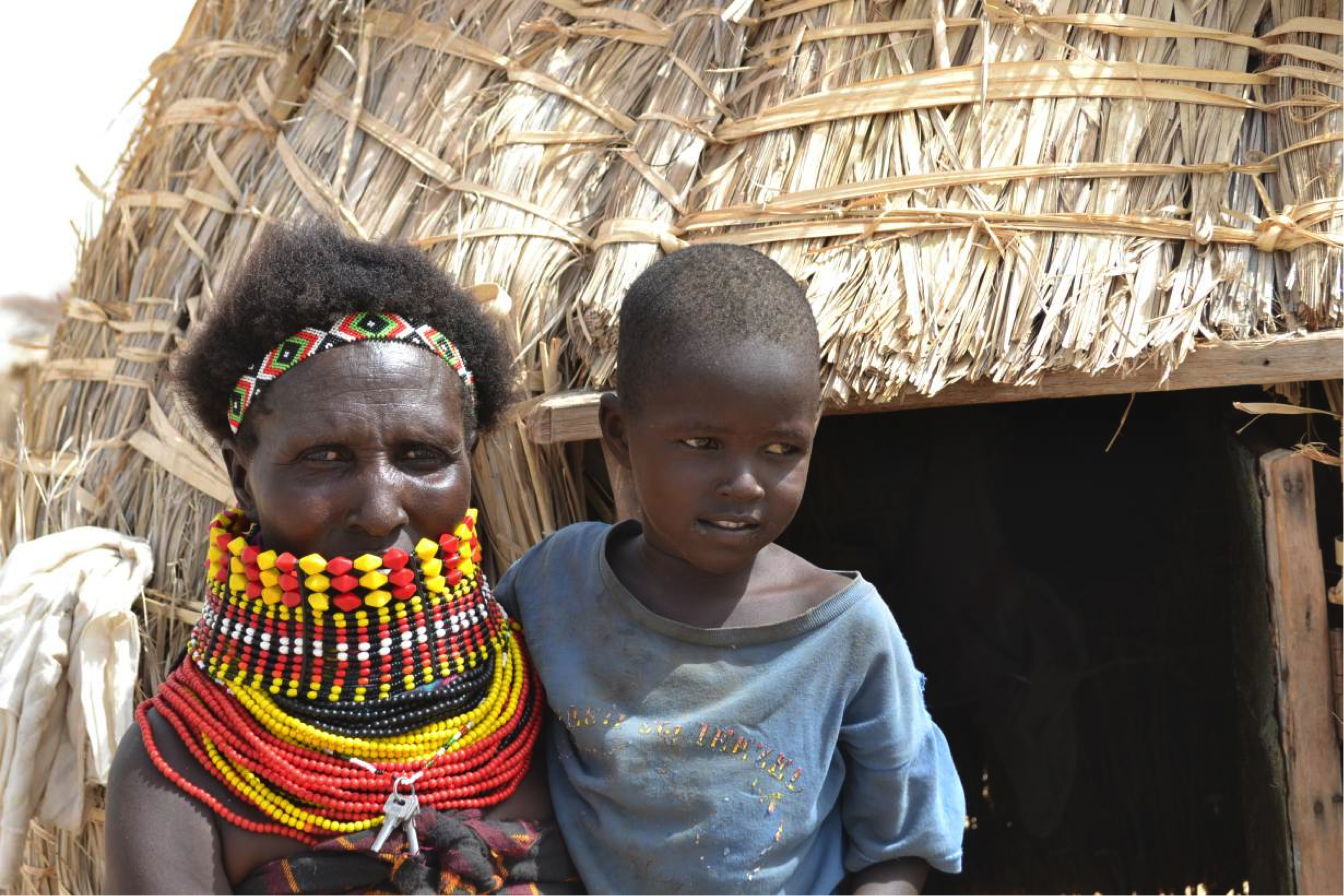
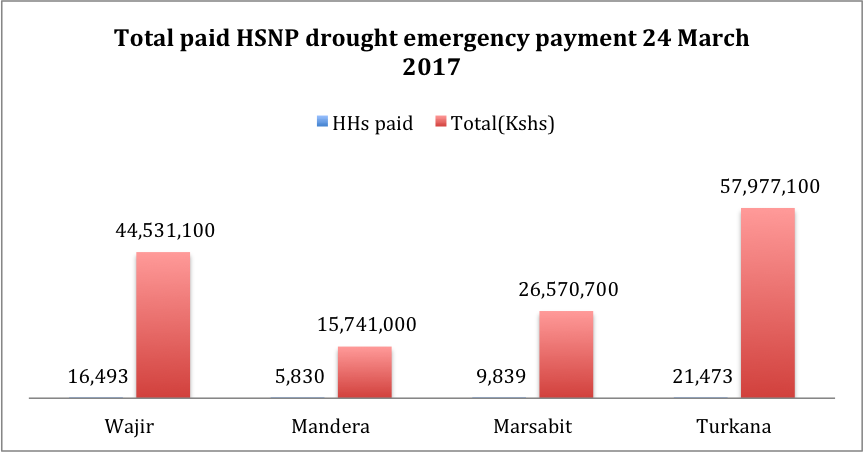

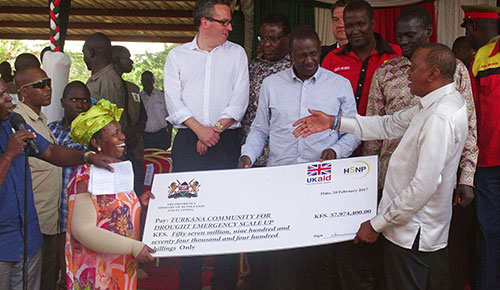 Yesterday, H.E President Uhuru Kenyatta witnessed HSNP drought emergency payments of Group 2 beneficiaries in Lodwar. The payments were triggered by the February 2017 vegetation cover index. Each household will received Kshs. 2,100. Drought emergency payments are also being delivered in the other three Counties of Wajir, Marsabit and Mandera. The President was joined by Nic Hailey, the British High Commissioner.
Yesterday, H.E President Uhuru Kenyatta witnessed HSNP drought emergency payments of Group 2 beneficiaries in Lodwar. The payments were triggered by the February 2017 vegetation cover index. Each household will received Kshs. 2,100. Drought emergency payments are also being delivered in the other three Counties of Wajir, Marsabit and Mandera. The President was joined by Nic Hailey, the British High Commissioner. 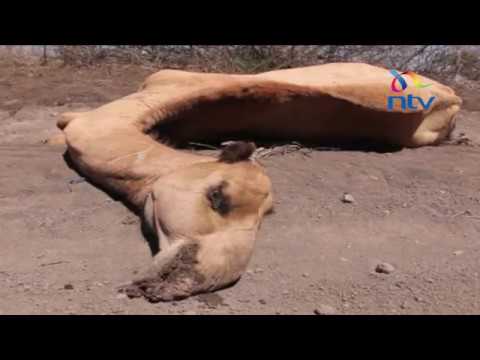 "Marsabit County is experiencing severe drought in sub-Counties such as North Horr, Laisamis and Moyale. A huge number of livestock is at risk of perishing. Both the National and County governments have embarked in implementing drought intervention activities. HSNP, a national cash transfer programme has scaled up drought emergency cash payments to additional households in the four Counties of Marsabit, Turkana, Wajir and Mandera." Guyo Golicha, CDC Marsabit
"Marsabit County is experiencing severe drought in sub-Counties such as North Horr, Laisamis and Moyale. A huge number of livestock is at risk of perishing. Both the National and County governments have embarked in implementing drought intervention activities. HSNP, a national cash transfer programme has scaled up drought emergency cash payments to additional households in the four Counties of Marsabit, Turkana, Wajir and Mandera." Guyo Golicha, CDC Marsabit